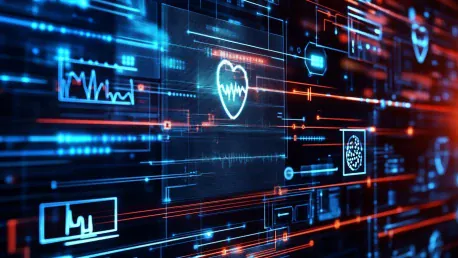The ongoing evolution of digital technologies offers the potential to profoundly transform the Australian healthcare system, and this promise is becoming increasingly evident. Published by Cosmos, the article explores the significant advancements in artificial intelligence (AI), digital twins, and biotechnology that are poised to revolutionize healthcare delivery and patient outcomes.
Transformative Potential of Digital Technologies
Central to this exploration is a report by the National Industry Innovation Network (NIIN) Health Alliance, which identifies key technological trends expected to impact Australian healthcare soon. These trends include augmented intelligences, digital simulations known as digital twins, remote patient care, adaptability in health systems, and innovations in biotechnology.
Augmented Intelligences and AI
Augmented intelligences, bolstered by AI and machine learning, have the potential to enhance human cognitive tasks dramatically. AI’s promise is particularly highlighted by Professor Vishaal Kishore, Executive Chair of the RMIT lab, who describes it as the most hyped technology trend of 2024. In practical applications, AI could revolutionize breast cancer screening by flagging high-risk mammograms, thereby assisting radiologists in prioritizing critical cases. Additionally, AI holds the potential to optimize hospital operations by predicting and resolving bottlenecks, thus improving overall efficiency.
Digital Simulations and Digital Twins
Digital twins represent a cutting-edge trend that allows healthcare providers to replicate and optimize real-world systems in a virtual environment. These simulations can range from patient-specific surgical models to comprehensive hospital system simulations. This trend ensures that healthcare providers can test and refine processes with minimal risk to actual patients, ultimately leading to improved patient outcomes and more efficient healthcare delivery.
Remote Patient Care and Health System Adaptability
Technologies enabling remote patient care are bridging the gap between patients and healthcare providers, offering the flexibility to deliver care without the need for physical presence. This trend enhances the adaptability and dynamism of healthcare systems, making them more responsive to patient needs and changing circumstances.
Biotechnology Innovations
Innovations in biotechnology, such as nanorobots and gene editing, hold immense potential but require a robust digital infrastructure to be fully effective. These breakthroughs can offer precise treatments and tailored therapies, yet their success hinges on the healthcare system’s readiness to integrate these advanced technologies.
Strategic Implementation and Collaboration
The NIIN Health Alliance’s report underscores the importance of practical steps to implement these technologies effectively over the next year. Building data pipelines for AI, investing in AI-related skills, establishing strong partnerships, and creating secure data infrastructures are essential components of this strategic roadmap.
A notable initiative is the plan to present the report at the Singapore NIIN Health Alliance Summit in October 2024. By collaborating with industry, academia, government, and health agencies, the NIIN Health Alliance aims to pilot these technologies in controlled environments, ensuring patient safety and system reliability before full-scale deployment.
Conclusion
The continuous advancement of digital technologies holds incredible potential to drastically transform the Australian healthcare system, and this promise is becoming all the more apparent. According to a recent article by Cosmos, significant progress is being made in the realms of artificial intelligence (AI), digital twins, and biotechnology. These groundbreaking developments are set to revolutionize how healthcare is delivered and enhance patient outcomes in meaningful ways.
AI, for instance, can analyze vast amounts of data far faster than a human ever could, leading to quicker and more accurate diagnoses. This efficiency not only saves time but also enables healthcare professionals to make well-informed decisions that could improve patient care. Digital twins—virtual replicas of physical entities—add another layer of transformation by allowing for advanced simulation and testing, minimizing risks during medical procedures and treatment plans. Biotechnology, meanwhile, is paving the way for innovative treatments and medications, offering new hope for conditions once considered untreatable.
As these technologies continue to evolve, Australia’s healthcare system stands to benefit immensely, setting a new standard for medical care and patient wellbeing.









